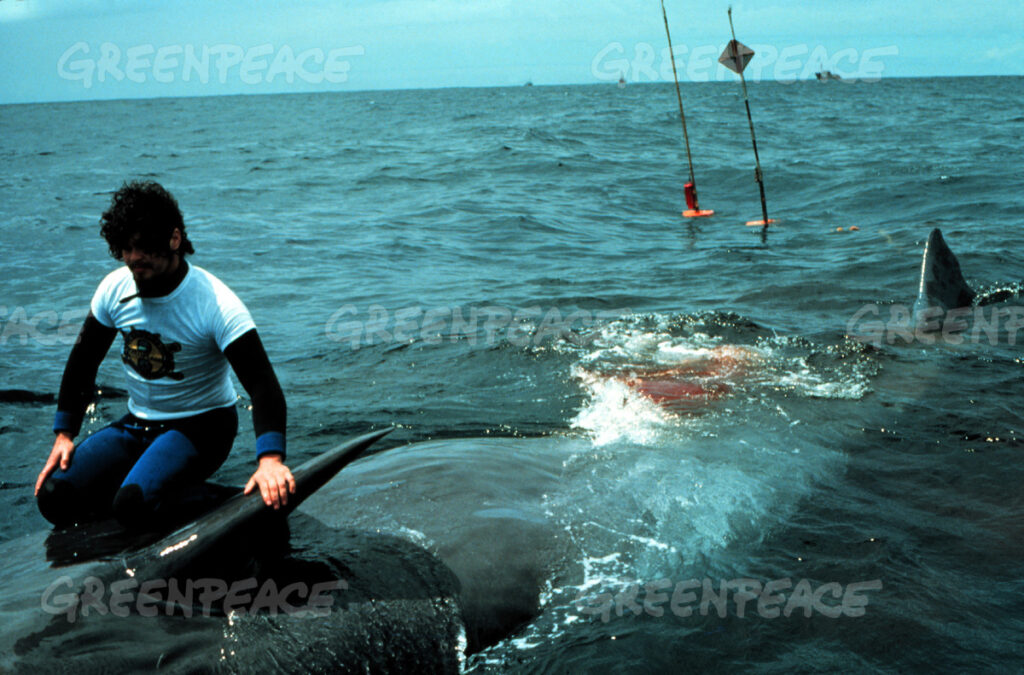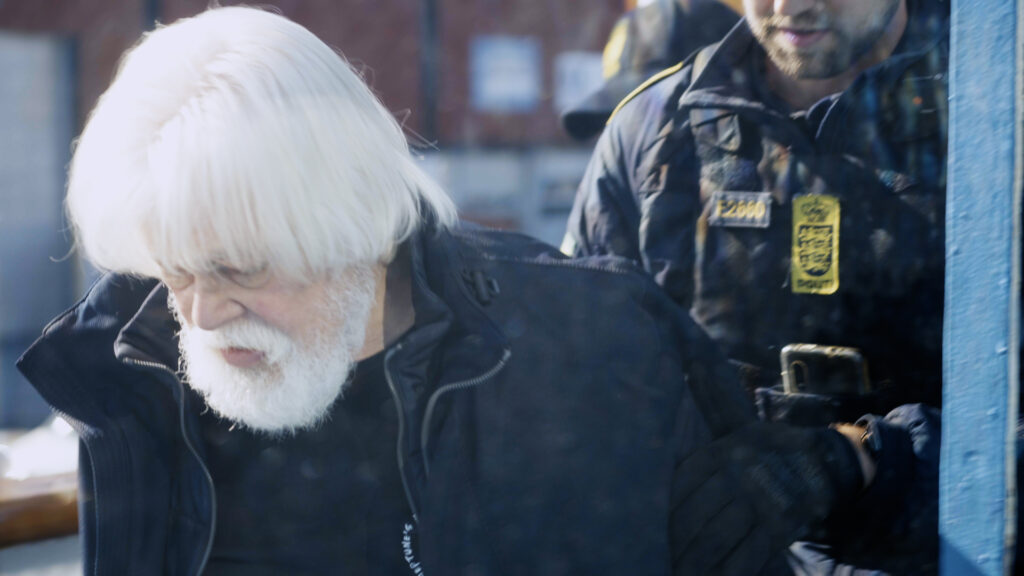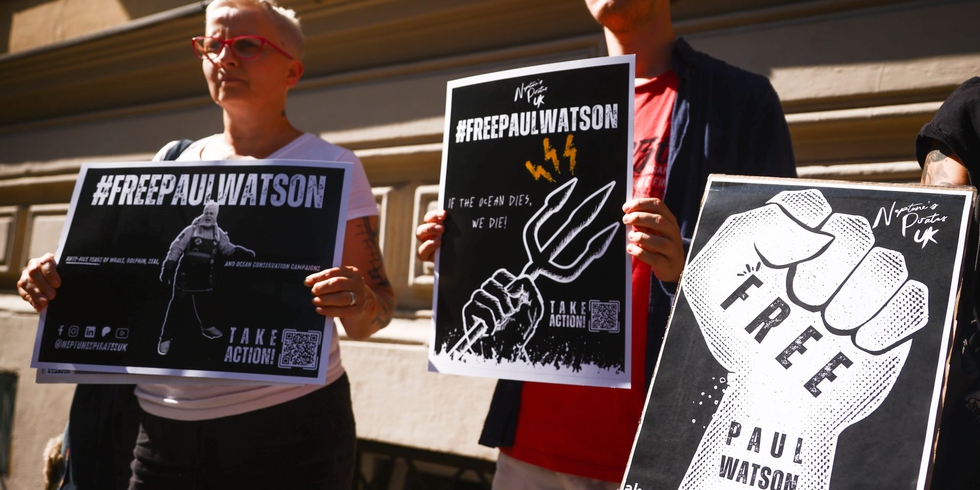Paul Watson is a name that has been heard a lot lately on social media. Not many are familiar with his mission but he is a household name among environmental advocates and animal rights activists. As a founding member and leader of the Sea Shepherd Conservation Society, Watson has become an iconic figure in the fight to protect the oceans and marine life at any cost.
From an early age, Watson developed a deep connection to the natural world and an unwavering passion for defending defenseless animals. In his own account, he recounts that at age 11 he was deeply shocked to witness the cruelty of commercial beaver hunting in Canada.
I used to swim with these beavers in a beaver pond when I was 10. I went back when I was 11 and found there were no more beavers. I found that trappers had taken them all, so I became quite angry, and that winter I began to walk the trap lines and free animals from the traps and destroy the traps.
Paul Watson
This incident was the trigger that led him to join the International Fund for Animal Welfare (IFAW), where he was active in campaigns to end the seal hunt. Subsequently, in 1972, Watson joined Greenpeace, quickly becoming one of the most prominent figures in the environmental movement.

Their battle with whale hunters
During his time at Greenpeace, Watson led bold protest actions, such as physically interposing himself between whalers and their prey. These tactics, while effective in drawing attention to the cause, earned him the nickname “The Whale Freak” and generated conflict within the organization.
“My philosophy has always been to protect animals at all costs,” Watson states with determination. “If it is necessary to use force to stop illegal hunting or fishing, I will do so without hesitation. For me, defending the environment and marine life justifies even the use of controversial methods.”
After leaving Greenpeace in 1977, Watson founded Sea Shepherd Conservation Society, an organization dedicated specifically to the protection of the oceans and their inhabitants. Sea Shepherd has distinguished itself for its aggressive and sometimes violent tactics, such as sinking whaling ships and intercepting vessels engaged in illegal fishing activities.
Facing justice
On July 21, 2024, Paul Watson was arrested by Danish police in the port of Nuuk, Greenland, while refueling his boat. This arrest followed a warrant issued by Japan. But why did Japan want to arrest Watson? The charges date back to a 2010 operation, when a Sea Shepherd activist boarded a Japanese ship to prevent whaling. Since then, Watson has been charged with trespassing, assault and battery.

En consecuencia, Watson fue ingresado en la base de datos de la Interpol. Organización que gestiona la recopilación de información sobre personas que violan la ley en todo el mundo. Cualquier persona ingresada en esta base de datos puede ser arrestada dondequiera que esté y posteriormente extraditada al país que emitió la orden.
Whaling in Japan: its main threat Sea Shepherd
Sea Shepherd actions in Japanese waters have included blocking whaling ships, sinking vessels and intercepting catches. Thanks to these interventions, approximately 90% of the whales targeted by the Japanese fleet were saved. This came at a high cost to Japan, which suffered a loss of more than $150 million. This would explain why the Japanese government considers Paul Watson a threat. Such interventions have caused the Japanese authorities to accuse Watson and his organization of “ecological terrorism”. This raises suspicions about the arrest. Since, after years of relative tranquility, Japan reactivated the Interpol “Red Alert”. Just as Watson was sailing towards the Kangei Maru, a huge new Japanese whaling ship.

Throughout his career, Watson has been arrested multiple times for his actions. He has been charged with crimes ranging from obstruction of justice to piracy. Despite the numerous prosecutions and charges against him, Watson has maintained his determination and commitment to the environmental cause. However, this time Paul risks up to 15 years in prison. Which has activated the #FreePaulWatson campaign and made his case and name resonate.
Beyond whaling
While whaling has been one of Sea Shepherd’s main focuses, the organization has also directed its efforts to other threats affecting the oceans and marine life globally.
“Our focus goes beyond whaling,” Watson explains. “We fight illegal fishing, marine pollution, overfishing and any other activity that puts the health of our oceans and their inhabitants at risk. We are the guardians of the seas, and we will do whatever it takes to protect them.”
Sea Shepherd’s campaigns have ranged from intercepting fishing vessels using destructive methods to freeing dolphins and sharks caught in fishing nets. The organization has also been involved in beach and seabed cleanup operations, as well as environmental education programs.
A controversial but transcendent legacy
Despite the numerous accusations and lawsuits he has faced, Paul Watson maintains an unwavering position in his defense of the oceans and marine life. For him, the methods used by Sea Shepherd, however controversial, are fully justified by the urgency and severity of the environmental crisis we face.
Over the decades, Paul Watson and Sea Shepherd have succeeded in bringing worldwide attention to the importance of marine conservation and the need for drastic measures to stop the devastation of the oceans. While his methods have been questioned, his legacy as a tireless guardian of the seas will be remembered for generations to come.
“I know some people see me as a nut or a fanatic,” Watson concludes. “But I’d rather be a madman than a coward. I’m going to keep fighting for this planet and all living things on it, whatever it takes.”
It may interest you Concerts on the beach: environmental impact





